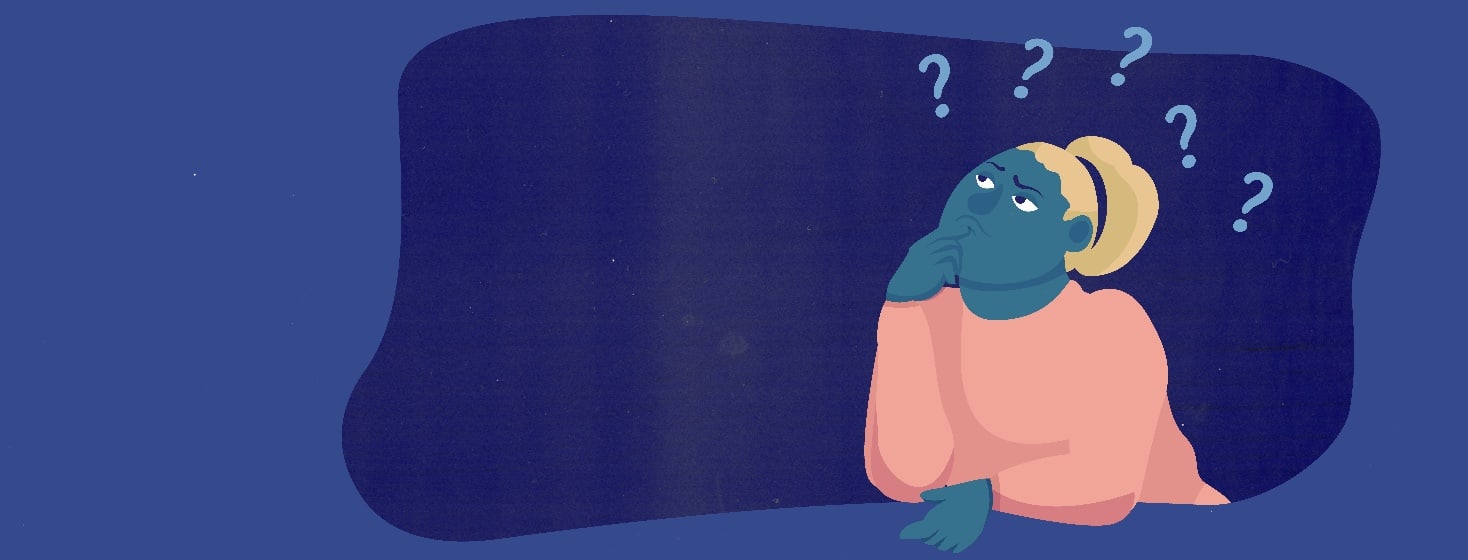Five Things About Migraine I Don’t Understand
Migraine is a weird, often confusing disease. Even though I've lived with it since childhood and been an advocate here on Migraine.com since 2014, there are still things about both migraine and how migraine is treated that don't make any sense to me. Such as...
Why can the same thing hurt or help migraine?
Take coffee: For some of us, the sweet caffeinated elixir is a godsend, for others, it’s a thick black poison that will bring on the head throbs. For a lot of us, it can be either or both depending on the day. Another example is sleeping. A nap can stop an attack in its tracks or you can wake up from a peaceful slumber in pain. There's probably an explanation, but it eludes me.
Why can an attack last for days or end suddenly?
I’ve had some attacks drag on like a lingering houseguest, day in, day out, until finally it slowly fades away. But then I’ve had (rare) attacks where all of a sudden the pain just drops away.
I wish I understood how to duplicate this!
Why do families experience attacks so differently?
My mother gets migraine aura with no headache symptoms. I’ve never had aura in my life and my headache symptoms are prominent. I’ve had chronic migraine but my brother has just gotten the occasional headache (which may or may not be migraine).
Why are we all different? Are genetics at play or are environmental factors the cause of the differences—or is it just random?
Why isn't migraine more widely researched?
Migraine is really common — you probably know more than one other person with the condition. It is the third most common disease and the sixth most disabling disease in the world.2 It's estimated that in 2016, costs associated with the migraine disease burden (both direct costs like the price of medicine and indirect costs such as missing work) totaled $36 billion.2 But yet, according to the chart in this article from the Washington Post, migraine is underfunded compared to other diseases of similar burden such a schizophrenia and epilepsy.1
Though I'm happy to see new medications and treatments starting to emerge, and hope we will keep trending towards more breakthroughs, it baffles me that the funding has been so weak.
Why don't more doctors understand this common disease?
According to our 2018 Migraine in America Survey, 74% of respondents had to see more than one doctor before receiving the diagnosis of migraine. For the respondents who experienced migraine during childhood, only 15% received a prompt diagnosis. I've heard many community members' stories about experiencing symptoms with significant disability who have either not gotten the proper diagnosis or adequate treatment from their doctor. Considering how common migraine is, I'm completely confounded as to why doctors don't routinely screen for migraine, the way they screen for high cholesterol or diabetes.
It leads me to almost screen for it myself in daily conversation, listening out for signs and symptoms, and encouraging acquaintances to bring it up at their next physical, keeping my fingers crossed that it'll be a productive conversation!
How about you?
Do you have any thoughts about any of the things above? Are there things that confuse you about migraine, too? We'd love to hear from you! Please share in the comments below!

Join the conversation